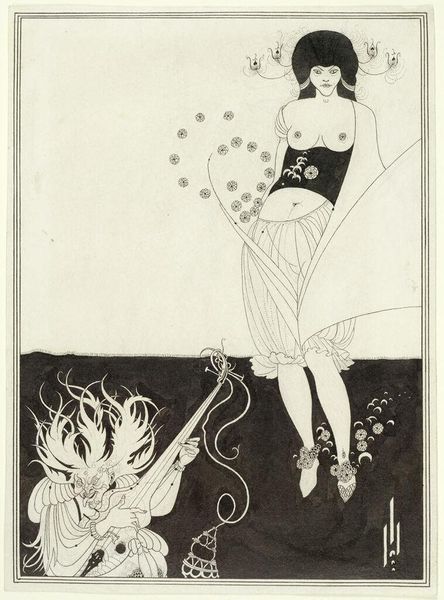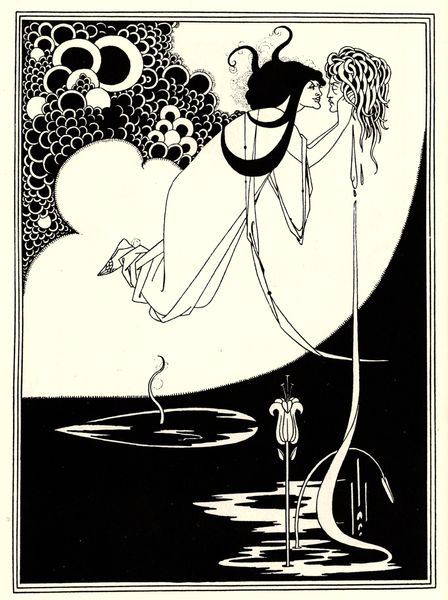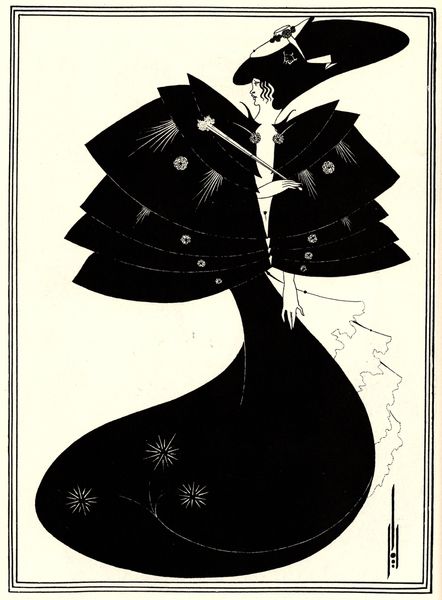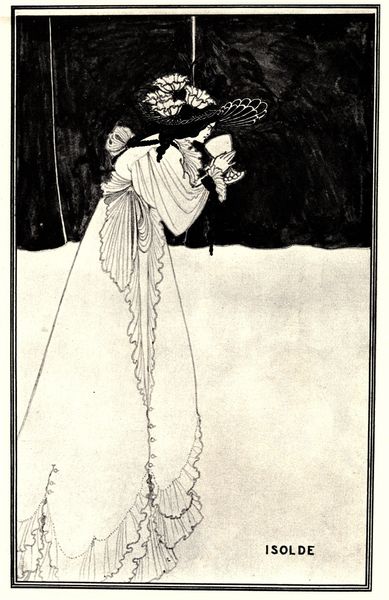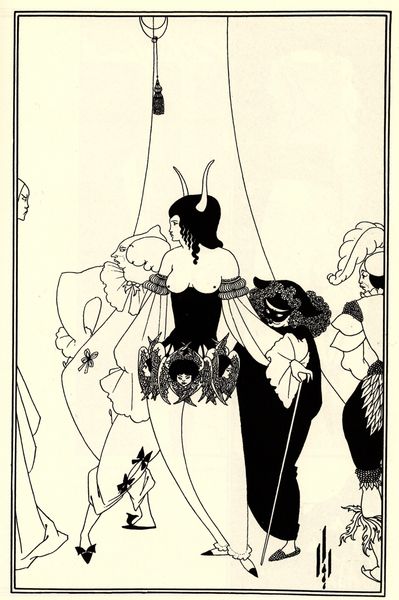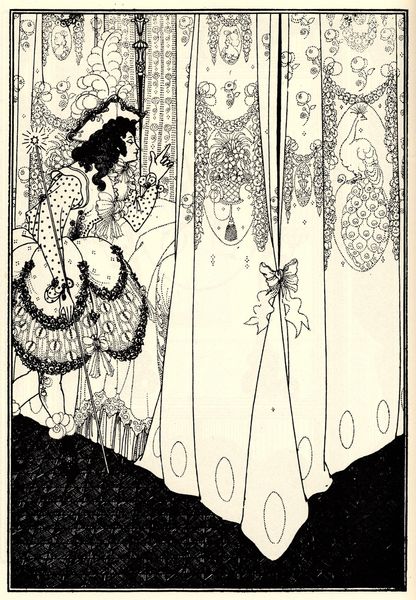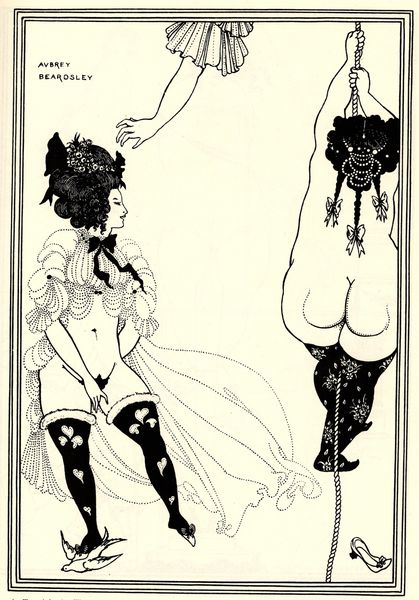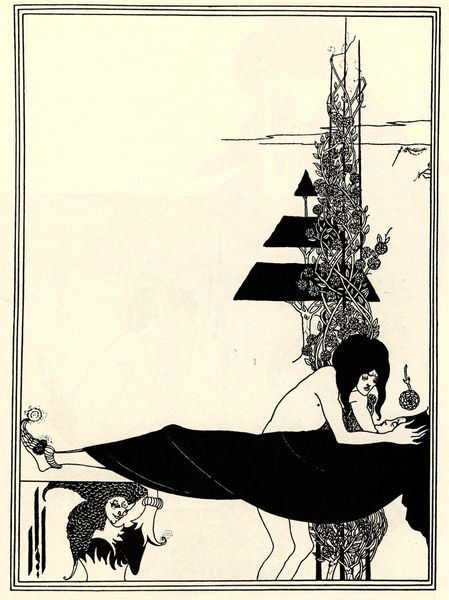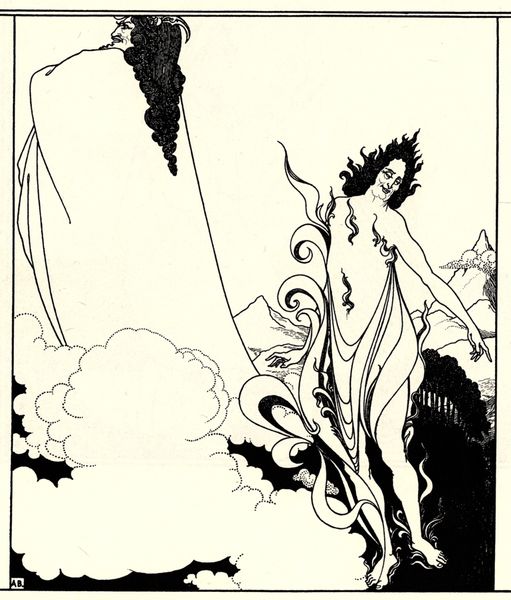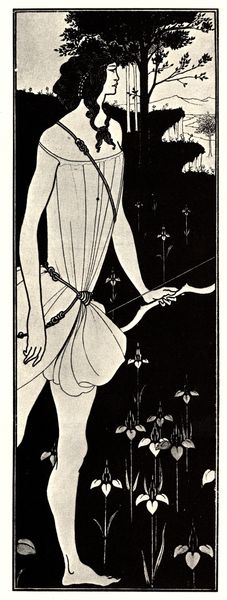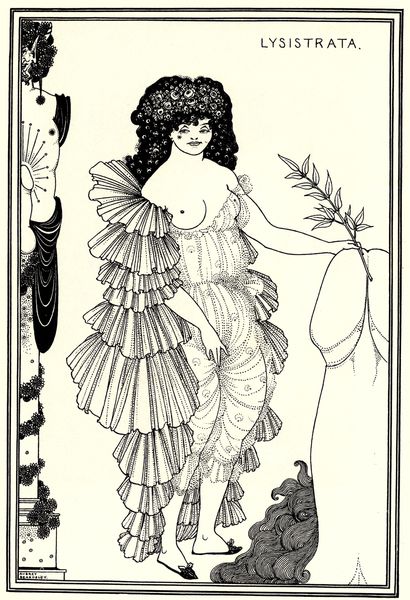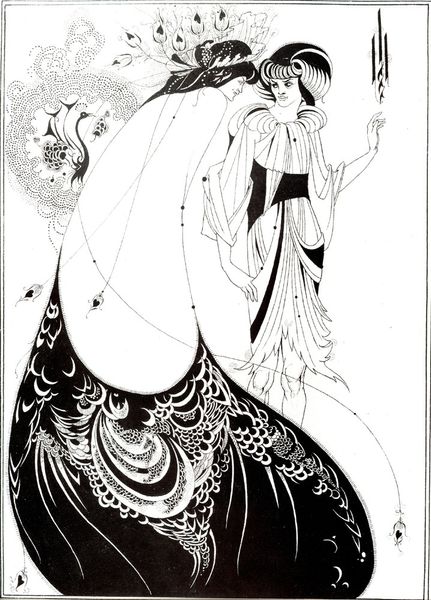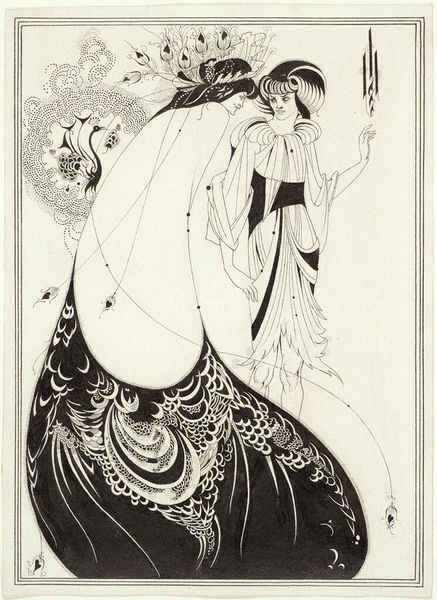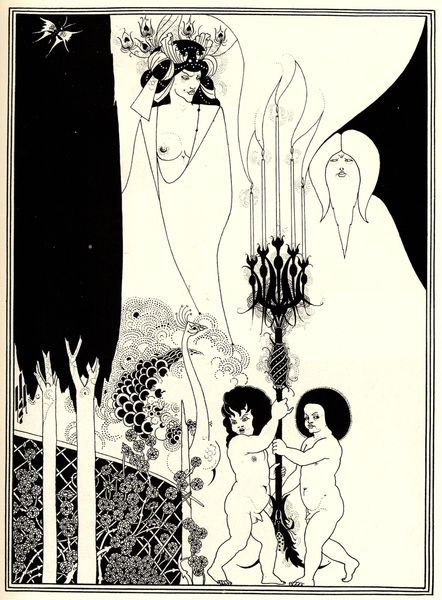
drawing, ink
#
portrait
#
drawing
#
art-nouveau
#
figuration
#
ink
#
line
#
symbolism
#
erotic-art
Copyright: Public domain
Editor: This is "The Stomach Dance," an 1893 ink drawing by Aubrey Beardsley. It has a haunting quality, with its stark contrast and unsettling figures. How do you interpret this work, especially given its title? Curator: The title itself is already a provocation, isn't it? Beardsley, as a figure deeply embedded within the aesthetic movement, often used symbolism and eroticism to critique Victorian society's constraints. This work, rendered with exquisite lines, places a sexually charged female figure at its center. Her pose isn’t passively beautiful; it’s confrontational, even defiant. Editor: The musician below is particularly grotesque. Is he representative of something specific? Curator: Indeed. Think about the male gaze and its potential for distortion. Beardsley positions him almost as a voyeuristic figure, embodying a distorted desire. The musician, therefore, might represent the societal forces that seek to control and commodify female sexuality. The image uses orientalist tropes but disrupts them to expose the exploitative nature of those desires. Editor: So, it's more than just a simple representation of a dance. It's a social commentary. Curator: Precisely. The symbolism, the decadent style, all point towards Beardsley's aim to expose the hypocrisies of his time. He’s not just drawing; he’s engaging in a visual form of activism, challenging Victorian norms surrounding gender, sexuality, and power dynamics. How does this change your perspective on the drawing? Editor: It certainly makes me appreciate the layers of meaning that might otherwise go unnoticed! It’s a reminder that art can be a potent form of social critique, especially when viewed through the lens of intersectional narratives. Curator: Exactly! And hopefully, inspires us to look beyond the surface in all the art we engage with.
Comments
No comments
Be the first to comment and join the conversation on the ultimate creative platform.
